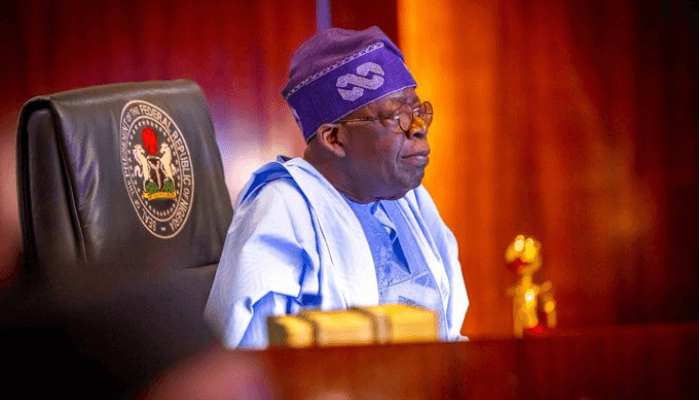The ongoing contemplated military action against military leaders and coup plotters in Niger Republic is designed to assert Tinubu’s legitimacy and draw parallels with strong leaders of the past, defining his presidency in a moment of uncertainty. Like his earlier reforms, he is not unaware that northern Nigeria will suffer the consequences, and he is unperturbed.
Much like Thatcher’s decisive commitment to defending the Falklands, which reinvigorated her political standing, Tinubu sensed an opportunity to cement his contested presidency by embarking on sweeping reforms to demonstrate an unwavering resolve and a dedication to the Nigerian people. The tangible impact on the lives of those in the affected areas continues to fuel debate and speculation among political observers, both within Nigeria and on the international stage, about whether these strategies will ultimately fortify Tinubu’s position or further divide an already polarised nation.
These trial-and-error reforms are having significant repercussions, particularly in northern Nigeria. The negative consequences of his policies, such as fuel subsidy removal, currency devaluation, and school fee increment, have created a wave of discontent in the region with dire socioeconomic challenges. Since the inauguration, the North has been at the receiving end of Tinubu’s experimental policies. The discontent is exacerbated by reforms that disproportionately impact the northern states, leading to a growing sense of alienation and mistrust.
The ongoing stand-off with Niger adds another layer of complexity to the situation. The sentiment that resonates with many affected areas is that he views the North as outcasts and expendable in his broader political strategy and the declaration of war with Niger fuels this debate. His indifference toward the northern states cannot be more obvious. If left unchecked, the consequences will be catastrophic for West Africa, not only for Nigeria. It will consume us all.
One cannot deny that Tinubu has already poked the hornet’s nest with his declaration. Since the establishment of the Sokoto Caliphate in the early 1800s, the relationship between Nigeria and Niger Republic has been characterised by peace and civility. The two nations have managed to avoid significant conflict despite being colonised by different European powers — France, Germany and England. However, the current situation represents a stark departure from this historical harmony, marking the first time that relations with Niger have deteriorated to such an extent.
The ongoing military expansion from its entrenched presence in North East states of Borno and Yobe to the border towns of Sokoto and Zamfara in the North West signals escalating tension. While actions such as electricity cutoffs from Kainji Dam and border closures might be seen as strategic manoeuvres, they leave a sour taste, hinting at deeper issues with a country we share so many things. If these disagreements intensify, it is not just remote places of worship or deserted night-time motorways in the North that will bear the brunt. The war could very well be at our doorsteps across the country. It will be touching our daily lives, affecting our cities, and spilling over into our living rooms. Targets would not be confined to battlegrounds; they could extend to our crucial infrastructure — dams, airports, bridges, schools, hospitals, and government edifices.
That is why the people in northern Nigeria are anxious. People can dictate when a war starts but cannot tell when it ends. Further fueling these concerns is the involvement of Russia and the Wagner Group, a notorious Russian private military organisation. Their track record of sowing discord and their expertise in warfare add layers of complexity to the situation, casting a dark shadow of uncertainty over the future.
Even if Tinubu were to make a U-turn on his decision, the involvement of the Wagner Group adds a layer of complexity that makes a peaceful resolution appear nearly miraculous. The Wagner Group’s presence in various global conflicts paints a troubling picture. Their actions have contributed to strife in Sudan, Syria and Libya, exacerbating tensions and conflicts. Their meddling in Burkina Faso, Mali and Chad is fuelling already volatile situations and complicating peace efforts. Given the position Tinubu took with ECOWAS, separating the Wagner Group from Nigeria’s affairs seems daunting, and it will be terrifying if Russia takes the initiative.
The onus now falls on Nigerian lawmakers to guide and temper Tinubu’s actions. They must remind him that his primary duty as president is to the Nigerian people, above any external interests. The role of the northern lawmakers is pivotal in case there is any division in the chamber. They must steer the situation back to a path of dialogue and cooperation, recognising that shared history and mutual respect have traditionally guided these regional relations.
The stakes are high: if conflict erupts and Nigeria loses, these lawmakers might find themselves without positions in mere weeks. Northern senators must heed the lessons of war-torn nations like Syria, Libya, Iraq and the Central African Republic and act to prevent conflict in Nigeria. Unlike their previous speedy approvals of the 2023 supplementary budget and the bow-and-go ministerial confirmations, they must put Tinubu under a microscope.

 Join Daily Trust WhatsApp Community For Quick Access To News and Happenings Around You.
Join Daily Trust WhatsApp Community For Quick Access To News and Happenings Around You.


